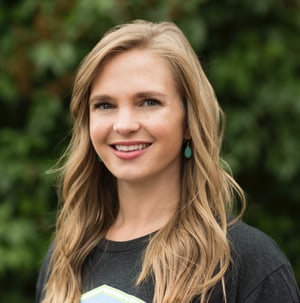Debunking the Entrepreneur Myth with Michael Gerber
Share this
Would you be shocked to learn that the majority of people who start businesses are not actually entrepreneurs? Rather they’re “technicians,” people who have a particular skill but in reality know nothing about running a business. This is why most businesses fail.
That is the premise of the “Entrepreneur Myth,” or “E-Myth” for short, a term coined by author and business guru Michael Gerber. Gerber will be exploring the E-Myth, and how you can overcome it and find success, at XYPN LIVE 2018 in St. Louis this September.
Gerber has helped transform more than 100,000 businesses across the globe over the past 40 years. His New York Times best-selling book, The E-Myth Revisited, has sold more than five million copies and is one of the five top-selling business books of all time.
His goal? “To transform the state of small business worldwide.”
He’s off to a heck of a start.
If you're a business owner, chances are you've heard the catch phrase, "Work on your business, not in your business." This famous line comes from none other than Gerber himself, who more accurately said:
“Once you recognize that the purpose of your life is not to serve your business, but that the primary purpose of your business is to serve your life, you can then go to work on your business, rather than in it, with a full understanding of why it is absolutely necessary for you to do so.”
This is a statement we can fully get behind here at XYPN. In fact, we say it loudly, and we say it often. So many business owners fail to understand that they are not their business. It’s only when they start taking the time to work on their business that they become a true business owner instead of just another person with a job.
In the U.S., 80% of businesses fail within the first five years. And 80% of the surviving businesses fail within the next five years. Much of that failure, Gerber claims, comes from the fact that the majority of people who start their own business do so because they’re good at what they do and make the fatal assumption that their strong technical skills are enough for them to run a technical business.
People think that being great at something will make them great at running a business. They’re wrong, and this misconception can, and according to Gerber most likely will, kill a business before it ever really has a chance to start.
They’ve fallen victim to the E-Myth. The myth goes something like this: small business owner = entrepreneur. In reality, most small business owners = technicians who think they’re entrepreneurs. The common acceptance of this myth drives the widespread failure of businesses.
The E-Myth could have its own America’s Most Wanted poster for how many businesses it has killed.
This all seems very doom and gloom, especially for anyone considering starting a business. Gerber isn’t known to sugarcoat. He’s known for his pragmatic assessment of reality. Luckily, he’s also known for his concrete advice that has helped millions of people worldwide debunk and overcome the E-Myth.
Step One: Be More Than a Technician
The first step to debunking the E-Myth is realizing that building a successful business is about so much more than just having the technical skills. In fact, knowing how to do the technical work of the business is the least important part of creating a truly entrepreneurial business.
Being a “technician,” as Gerber calls it, will only get you a third of the way to building a successful business. You also need to focus your time and energy on other roles, more specifically that of the “manager” and the “entrepreneur,” to succeed.
While the technician is skilled in something that people want and is therefore the doer, the manager establishes order and ensures everything stays on track, while the entrepreneur thinks more globally about the future. The technician thrives at execution, the manager at business sustainability, and the entrepreneur at driving the business forward.
Knowing how to balance these three roles is essential to creating a sustainable, profitable business.
“It’s only through the entrepreneur and the manager coupled with the technician that you will ever be able to truly explore and discover this rich, extraordinary opportunity that owning a business of your own can provide.”
As a small business owner, you’ve probably already guessed that you will likely play all three of these roles. In the beginning, you need to be able to do the technical work to cut costs, be able to manage and train other employees as your business grows, and be able to take risks and have a plan for the future.
You often hear about the “entrepreneurial spirit.” Real business success demands more than that. It also demands the “technical spirit” and the “managerial spirit.”
Hey, no one ever said starting a business was easy.
For business owners who fail to embrace the manager and entrepreneur roles, their business likely never lives beyond its infancy stage. This is the stage where the business operates on what the owner wants, not what the business needs.
However, business owners who realize things cannot continue the way they have been, and who have learned to balance being a technician with being a manager and an entrepreneur, advance to the adolescence stage of business. This is the stage where you’ve decided to let your business grow, and it begins to creep outside of your comfort zone.
For the technician, this stage demands more work than you’re comfortable doing on your own. For the manager, this stage involves more subordination than you’re comfortable managing. And for the entrepreneur, it’s a question of how many managers you can keep motivated to head towards your vision.
As Gerber attests, the “magic” doesn’t happen inside your comfort zone. If you can expand your comfort zone to increase your ability to handle your business’s growth, your business will reach the maturity stage, where your business has a clear vision and purpose.
No one has ever accomplished anything remarkable inside the confines of what's comfortable. If you want to find repeated success, you must constantly increase the size of your comfort zone.
Step Two: Depend on Systems, Not People
Another important step to debunking the E-Myth and finding success is thinking bigger than yourself. Most people set up their businesses to be people-dependent when they need to be systems-dependent.
If your business is dependent on you, it’s going to fail. If it’s dependent on a handful of employees, even if they’re all rock stars, it’s going to fail. Your business should be intentionally designed to be dependent on systems, not people.
As Gerber explains, “Find a system that leverages your ordinary people to the point where they can produce extraordinary results over and over again.” Even if you are your only employee, a solid system can elevate your capabilities.
Gerber points to the “turn-key revolution” as a “way of doing business that has the power to dramatically transform any small business—indeed, any business, no matter what its size—from a condition of chaos and disease to a condition of order, excitement, and continual growth.”
Creating repeatable processes and systems is at the heart of the turn-key revolution and creating a successful business. The turn-key revolution is the act of setting up your business so that you have systems and processes designed for a consistent, effective, and orderly way of doing business day in and day out. These processes allow your business to produce success in a predictable, repeatable manner.
What Do You Want From Your Business?
“Of the thousands of business people I have had the opportunity to know and work with over the past two decades, few were real entrepreneurs … If the entrepreneur survived at all, it was only as a myth that grew out of a misunderstanding about who goes into business and why … That myth, that misunderstanding, I call the E-Myth, the myth of the entrepreneur.”
Many people starting a business begin by asking the wrong question. The first step to creating a successful business isn’t deciding what your business will do, sell, create, etc... It’s being able to answer what you want from your business. When you take the time to “stop, look, and listen, [and] ask what it is you really want before you ask what your business is going to do—it’s transformational.”
To hear Michael Gerber speak about debunking the E-Myth and running a successful business, get your pass for XYPN LIVE 2018.
 About the Author
About the Author
As XYPN’s Content Manager, Kelly is tasked with communicating the Network's value proposition to the world. For years, Kelly has helped organizations tell their stories in ways that inspire others to listen, and to care. Her penchant for a well-crafted sentence, good grammar, and clever wordplay has earned her the moniker “Word Whiz” around the XYPN office. She’s thrilled to share XYPN’s story with you and the rest of the world.
Share this
- Running Your RIA Efficiently: Outsourcing Bookkeeping with XYPN Books
- Road to Launch with XYPN Member Alan Skillern, CFP®, MBA
- Coaching for Better Time Management: Prioritizing Organic Growth in Your Daily Routine
- Boost Your Financial Advisory Practice: SEO Strategies and CRM Optimization for Sales Success
- Advisor Blog (693)
- Financial Advisors (221)
- Growing an RIA (99)
- Digital Marketing (87)
- Marketing (84)
- Community (81)
- Start an RIA (76)
- Business Development (72)
- Coaching (72)
- Running an RIA (70)
- Compliance (69)
- Client Acquisition (65)
- Technology (64)
- XYPN LIVE (59)
- Entrepreneurship (57)
- Sales (49)
- Practice Management (44)
- Client Engagement (41)
- Bookkeeping (38)
- XYPN Books (38)
- Investment Management (37)
- Fee-only advisor (36)
- Lifestyle, Family, & Personal Finance (31)
- Employee Engagement (30)
- Client Services (25)
- Financial Education & Resources (25)
- Journey Makers (21)
- Market Trends (21)
- Process (14)
- Niche (11)
- SEO (9)
- Scaling an RIA (9)
- Career Change (8)
- Transitioning Your Business (7)
- Partnership (6)
- Transitioning To Fee-Only (4)
- Social Media (3)
- Transitioning Clients (3)
- Emerald (2)
- Persona (2)
- RIA (2)
- Onboarding (1)
- Sapphire (1)
Subscribe by email
You May Also Like
These Related Stories

Our Top Blogs of 2018 for Independent Financial Advisors
Dec 31, 2018
9 min read

Invest in Yourself: How You Can Grow with Your Business
April 16, 2018
7 min read





